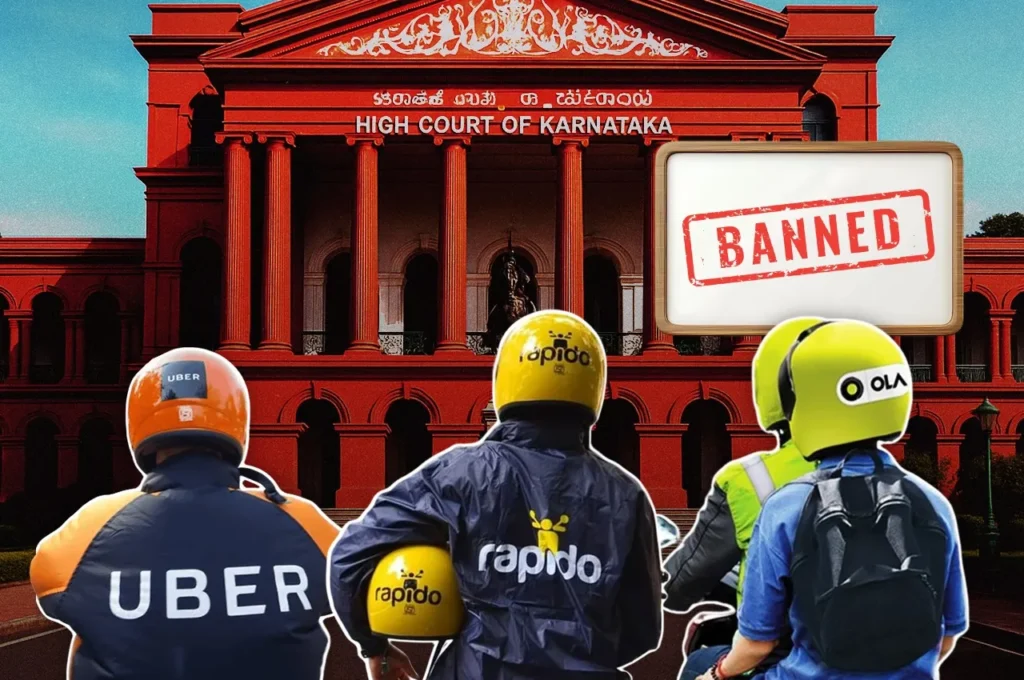In a major blow to India’s ride-hailing industry, the Karnataka High Court has refused to stay an earlier order suspending bike taxi operations across the state, effectively forcing companies like Ola, Rapido, and Uber to cease these services starting Monday, June 16.
The division bench, comprising Acting Chief Justice Kameswar Rao and Justice Sreenivas Harish Kumar, directed both petitioners and the state transport department to present detailed arguments by June 20, with the matter scheduled for its next hearing on June 24.
Highlights of the Court’s Decision
- The court declined interim relief to ride-hailing platforms.
- The April 2 ruling mandating statewide suspension of bike taxis remains active.
- Petitioners argued for central rules under the Motor Vehicles Act, but the state rejected this claim.
- The court noted the state government’s lack of interest in creating a dedicated policy for bike taxis.
What Led to the Ban?
The April 2 judgment by Justice B. Shyam Prasad ordered a complete halt to bike taxi operations in Karnataka within six weeks, citing the absence of a regulatory framework under Section 93 of the Motor Vehicles Act. The deadline, initially set for May 14, was extended once and now officially concludes on June 15.
While companies pushed for continued operations citing central guidelines, the Karnataka government maintained that central advisories are non-binding unless formally incorporated into state law.
Industry Response and Economic Impact
Rapido, one of the largest bike taxi platforms in the state, warned of livelihood disruptions affecting over 600,000 riders. According to the company:
- 75% of its riders rely on the platform as a primary income source.
- Riders earn an average of ₹35,000/month.
- In Bengaluru alone, Rapido claims to have:
- Paid ₹700 crore to captains
- Contributed over ₹100 crore in GST
NASSCOM’s Intervention and Policy Concerns
Amid growing concerns, NASSCOM submitted an official representation to Karnataka Transport Minister Ramalinga Reddy, urging reconsideration of the ban. The industry body emphasized:
“The ecosystem not only offers affordable and efficient mobility but also sustains lakhs of gig workers across the state.”
The organization highlighted how students, migrant workers, and women rely on flexible income opportunities provided by bike taxis and urged the government to take a consultative approach in framing rules.
What’s Next?
- Bike taxi services will be suspended across Karnataka from June 16.
- Both the state and petitioners will present further arguments on June 20.
- The case will resume hearing on June 24.
Unless the government initiates a dedicated policy framework, the ban could become permanent—potentially impacting thousands of gig workers and mobility choices for urban commuters.

